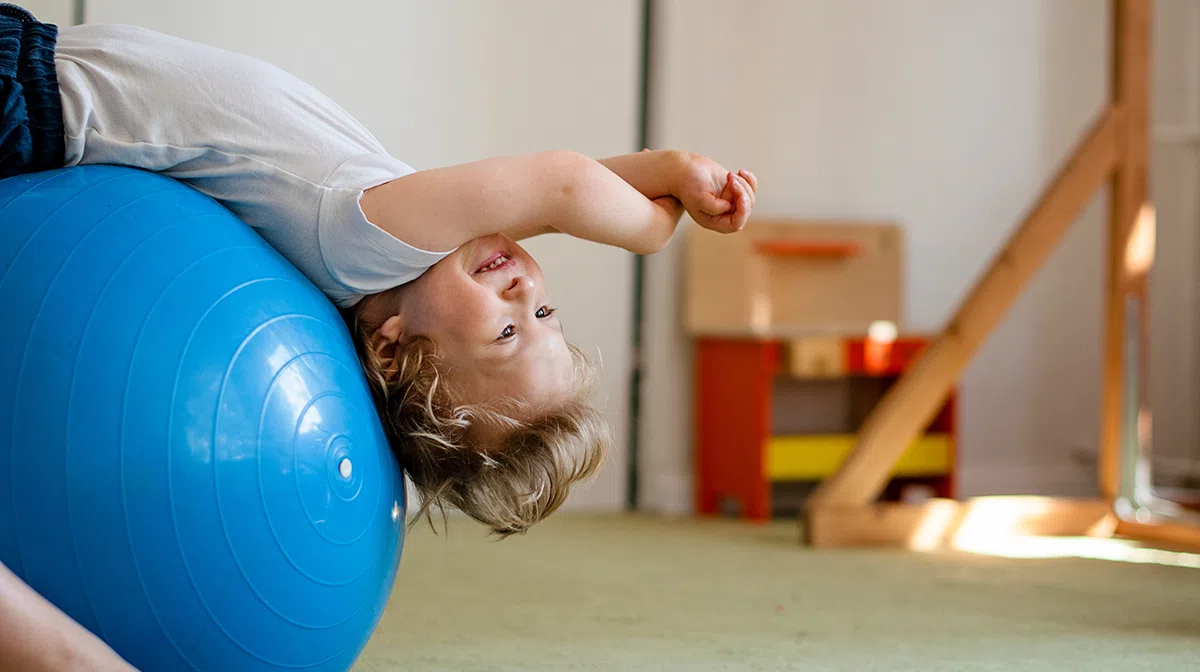Accelerate Social-Emotional Development Of Your Child
Play is the natural way to involve children in activities that helps them to learn and develop. It’s also important to ensure the development of all areas — especially social-emotional development. In fact, it is only through play that a child will be able to learn to manage volatile emotions such as excitement, anger and frustration in a safe way.
Apart from this, young children are exposed to emotions due to what happens around them in their own lives. This creates innumerable opportunities to explore different emotions and learn to express them in different ways, including words.
By involving in play with other children, for instance, your child is creating opportunities for social-emotional development in real-time. She also learns to be able to control her behaviour effectively and build upon new relationships.
Another fact to note is your toddler is always observing how you express your feelings, and there is no better way or time than this to set good examples which she can then begin to emulate. Since young children learn by imitating adults, showing them how you positively manage your feelings about negative events will prove very effective. For example, you send powerful messages when you respond to your frustrated child with calmness and understanding.
What to expect from your toddler’s emotions
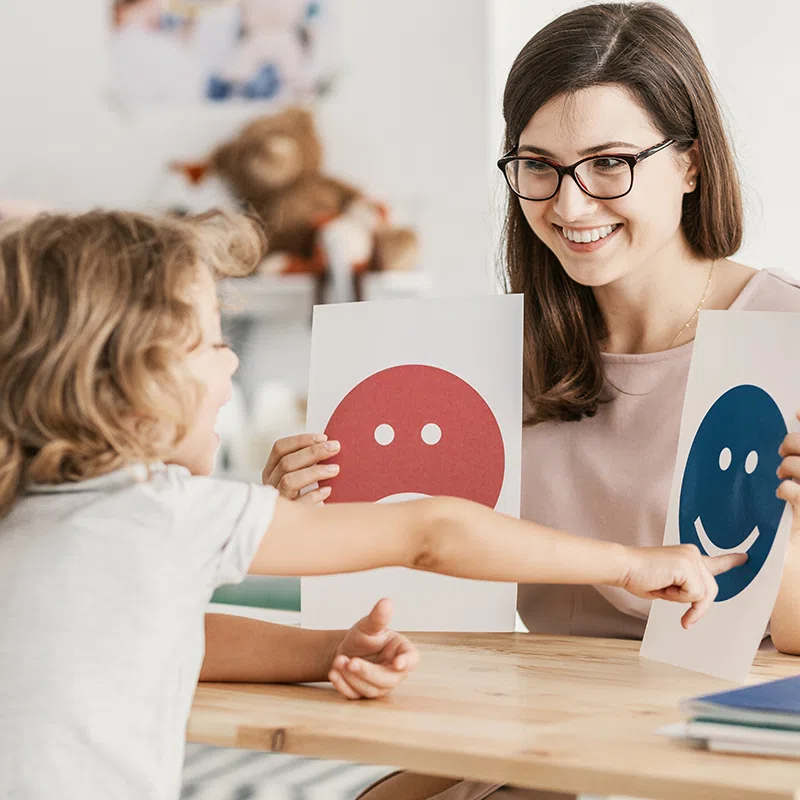
As young children grow and progress through the several stages of social-emotional development process, they become increasingly aware of their own feelings and stay attuned to the emotions of others and are able to relate to how they feel.
Healthy emotional development will enable a child to show empathy or concern when someone is sad or upset or be able to share in the excitement of others. Your toddler may express sadness when she is feeling unhappy, often with a sense of loss or disappointment. And express happiness by feeling joyful or content, often accompanied by smiling and radiating positive energy.
When she is feeling intense displeasure or frustration she may express these emotions through anger and show displeasure. And when excited she will openly express her feelings enthusiastically, and this is often accompanied by increased energy and anticipation.
Moving through the different stages of social-emotional development, your child will learn about sharing, although she may not always understand why sharing is important or be willing to share all the time. For example, young children are possessive of their toys or other possessions and would need guidance and encouragement to share them.
A healthy emotional development will enable your toddler to express affection for her friends in a variety of ways, such as making drawings or giving hugs without you even having to be prompted. These actions show that she is progressing in developing her social skills and beginning to understand the importance of maintaining positive relationships with her peers and adults alike.
The importance of emotional intelligence
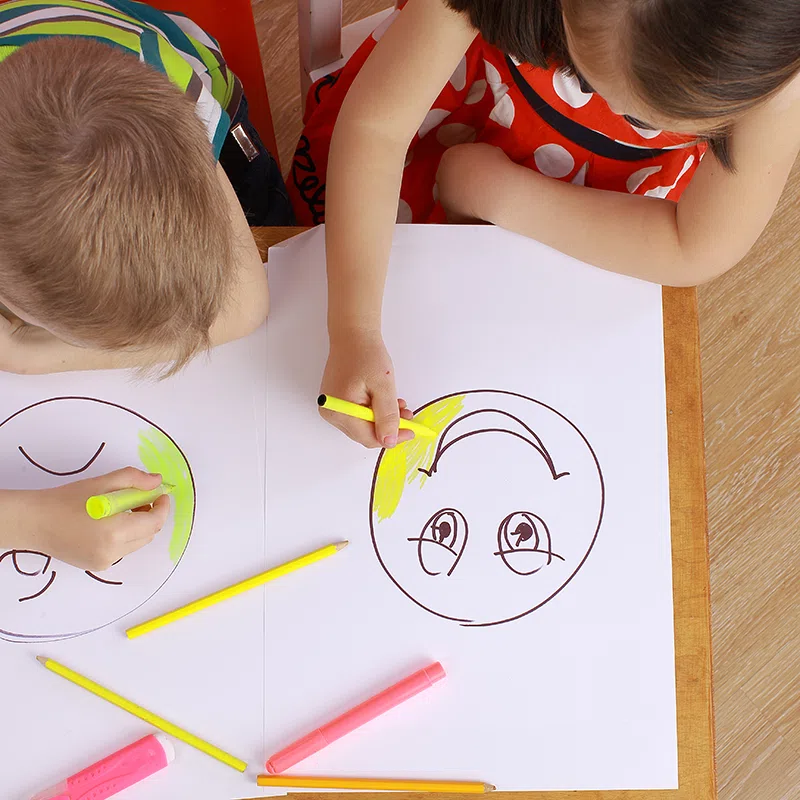
Emotional intelligence refers to the capacity to effectively perceive, interpret, manage and leverage emotions in order to establish meaningful connections and communicate effectively with others.
It entails not only the ability to regulate one’s own emotions in a mature and constructive manner but also the capacity to identify and respond appropriately. The degree of proficiency in these skills determines an individual’s level of emotional intelligence.
The thing to note is the development of emotional Intelligence is distinct from the development of academic intelligence. The sooner you focus on this aspect of behaviour, the better it will be for your toddler. A child will derive many benefits from the positive impact emotional Intelligence will have on her success and well-being.
This is why it is essential to focus on five key social skills development factors that are often referred to as critical components of Emotional Intelligence:
Self-awareness:
The objective is to help your toddler develop the ability to recognize and understand her own emotions, strengths, weaknesses, and values. It involves helping her to accurately assess her emotional states and understand how these affect her own behaviour and decisions.
Self-regulation:
This is the ability to manage one’s own emotions, thoughts, and behaviours in a way that is appropriate for the situation. It involves being able to handle stress and impulses and adapting to changing situations and circumstances.
Motivation:
This is the ability to use one’s own emotions to drive and sustain goal-directed behaviour. It involves having a sense of purpose and direction, being able to set and pursue meaningful goals, and being resilient in the face of setbacks.
Empathy:
It is nurturing the ability to understand and respond to the emotions of others. It involves being able to accurately perceive the emotional state of others, be able to see things from their perspective, and respond in a way that is appropriate and helpful.
Social skills:
This is the ability to use emotional intelligence in the context of interpersonal relationships. It involves being able to communicate effectively, build and maintain relationships, influence and inspire others, and work collaboratively.
Helping your toddler develop self-awareness
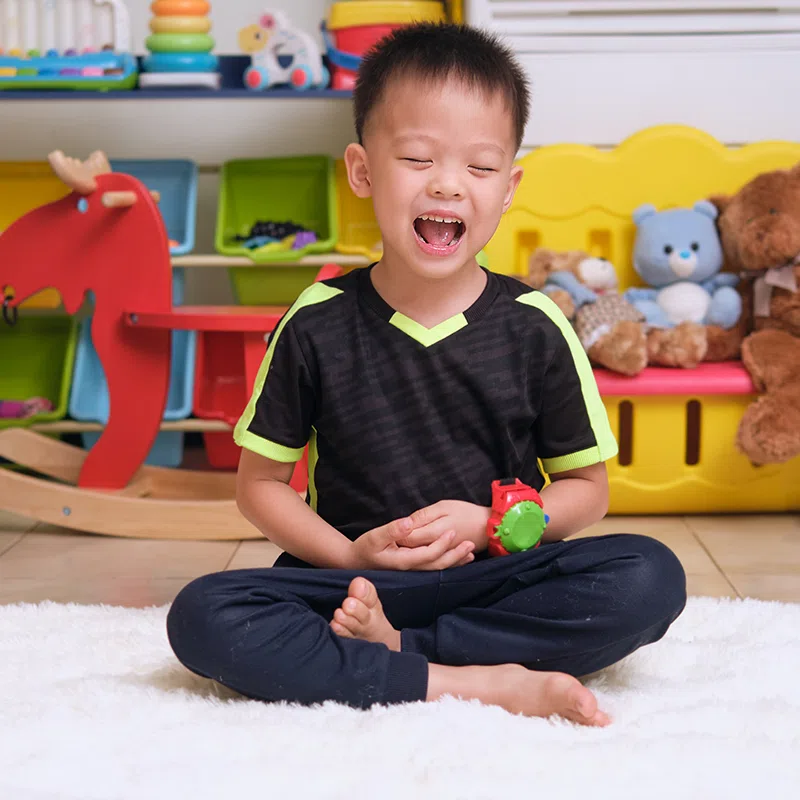
Social skills development programs encourage mindfulness and self-reflection by validating your child’s emotions. Teach words that describe feelings such as anger, sadness, happiness, and draw faces that show these feelings. Your toddler can hold these cards up when she is feeling those emotions.
This is one way to help your child begin to recognize and describe her emotions. Helping her to gain the confidence and the vocabulary to identify and label her emotions and to feel more in control.
Effective emotion management skills will help your child identify her feelings quickly. Understand why she is experiencing them and then what to do in response to the feelings she has. Encourage this by providing opportunities for your child to make choices and reflect on the consequences of those choices. Identifying her strengths and weaknesses will help you to focus on areas where she may struggle.
When teaching emotion management skills, you as a parent need to practice active listening and validate your child’s feelings when she expresses them, even if you don’t necessarily agree with her perspective. This is when a safe and supportive environment where your child feels comfortable sharing her thoughts and feelings without fear of judgement or ridicule will have a positive impact.
By providing a supportive environment and modelling positive behaviour, you will help your child to navigate in choppy waters of emotional upheavals and develop the skills necessary for maintaining healthy relationships and ensuring personal growth.
Above all, promoting self-awareness in your child will be essential and helpful in helping her to set goals and work towards achieving them, as well as continue to influence her emotional development and well-being in the future.
Helping your child learn to self-regulate
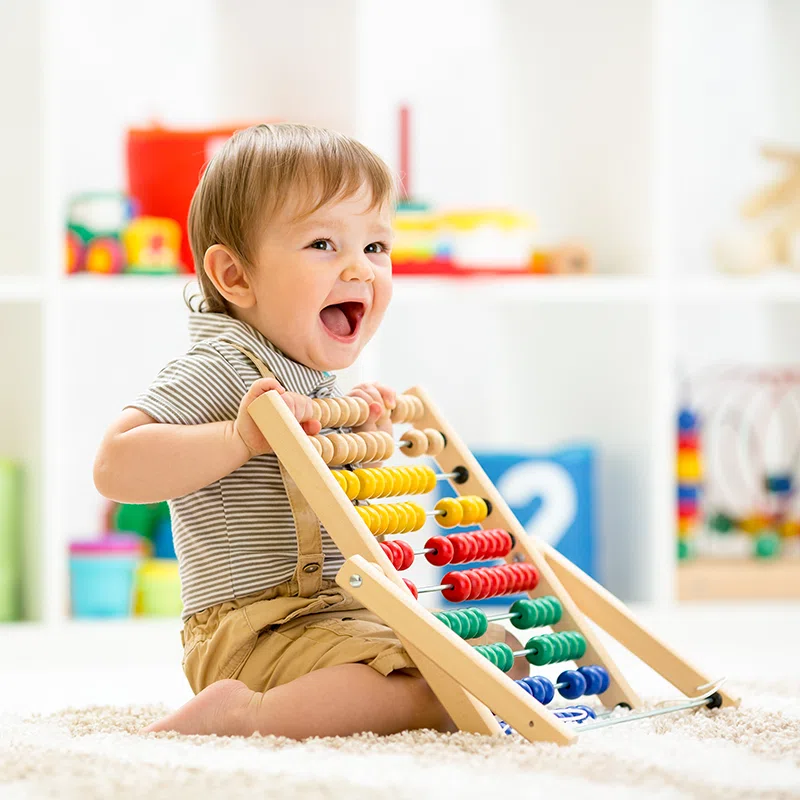
Supporting your child in developing this skill will be crucial. Gaining control over intense emotions is a big challenge for your child. But with practice and your guidance, your child will learn to respond in meaningful ways rather than react in a negative manner. In effect, learn to think before acting.
The first critical step in supporting your child’s emotional self-regulation is to validate the intensity of emotions. This is why it is essential for your child to acknowledge her feelings and help her understand that these emotions are normal. By doing so, your child will feel heard and understood, which helps build her own self-esteem and confidence.
Another crucial aspect of modelling self-regulative behaviour is to discuss your own emotions calmly and confidently. By sharing how you feel and how you respond positively to challenging situations, you can show your child that it is possible to manage intense emotions effectively. This can be especially helpful in addressing the perfectionist tendencies that many parents may have with high-potential learners.
It will be critical for your child to learn and look upon emotions as useful feedback that can inform a positive and proactive response, rather than something to be feared or ashamed of. By adopting this mindset, your child will begin to view her emotions more objectively and learn to use them as a tool for personal growth and development.
Help your toddler develop problem-solving skills by encouraging her to think through situations and come up with solutions. This can help her learn how to regulate her own emotions and respond to challenging situations in a more effective way.
Ultimately emotional self-regulation allows your child to gain control over her reactive emotions and develop more effective strategies to deal with unpredictable situations. Instead of giving way to the blind panic of frustration and anger, your child will learn to approach difficult tasks more calmly, and confidently, leading to greater success and positive outcomes.
How to help your child stay motivated

Recognizing that every child is unique and may respond differently to various motivational techniques is important. Observe and listen to your child, and tailor strategies to suit her individual needs and preferences.
Create a positive learning environment for your child where mistakes will be seen as opportunities for growth and learning rather than being viewed as failures. Encouraging questions and curiosity, and providing resources and support when needed, can help to foster a love of learning and a sense of achievement.
Teach your child to break down larger tasks into smaller, manageable steps, this will make big tasks seem easier to achieve, and don’t forget to praise the progress she makes, this will encourage her to maintain momentum and stay motivated.
Participating in new learning experiences and exploring different activities can be very beneficial for both you and your child. It not only helps in bonding and building a deeper relationship with your child but also provides a huge opportunity to model the importance of taking risks and trying new things.
Every child learns by observing and modelling the behaviours of adults. By demonstrating a positive attitude towards failure and mistakes, parents can help their children develop a growth mindset, which can be valuable in helping develop important life skills, such as resilience, adaptability, and problem-solving abilities.
By fostering a growth mindset, providing support and encouragement, and creating a positive learning environment, parents can help their children to maintain motivation and reach their full potential.
Teaching your child how to empathize
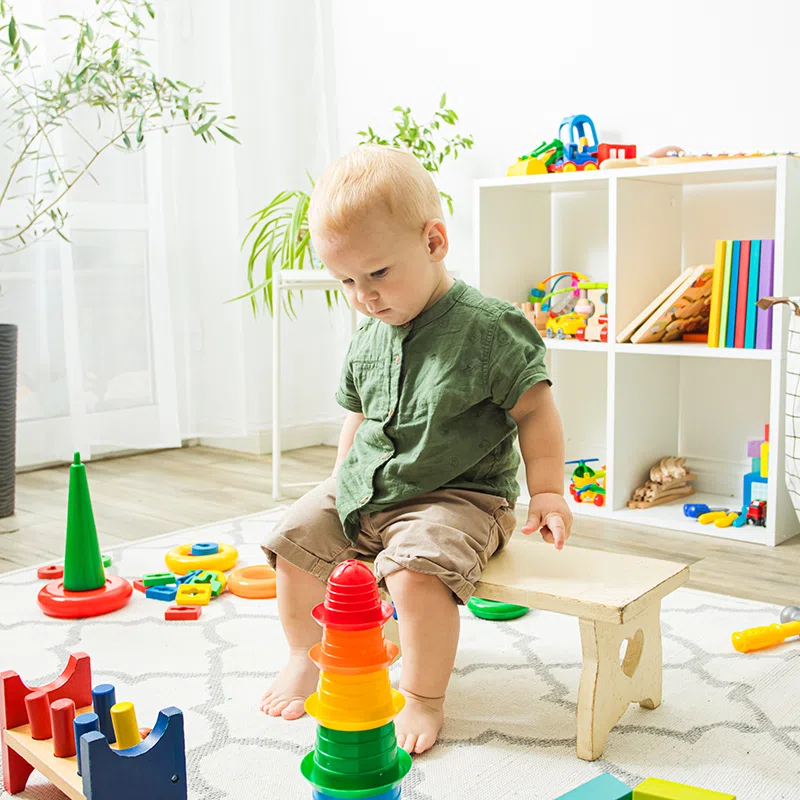
Empathy is an essential social and emotional skill to help your child understand and connect with others. It involves recognizing the feelings of others and responding appropriately. Talking and discussing emotions with children is an effective way to help them develop empathy. When children understand and recognize their own emotions, they are better able to recognize and understand the emotions of others.
Creating opportunities for your child to help others is another way to develop empathy. Volunteering at a food bank, visiting nursing homes or hospitals, and participating in community service projects are some ways to teach your child about helping others and understanding their needs.
However, it is also essential to teach your child not to exceed limits which can be overwhelming. By learning early in life when to step back will help your child avoid emotional exhaustion and burnout. Mindfulness, painting or quiet reading time, will be very beneficial in developing self-awareness and self-care.
Developing empathy is an ongoing process requiring patience, practice, and support. By talking with your child, providing opportunities to help others, and teaching self-awareness and self-care, you can help your little one develop critical social and emotional skills.
How to help your child realize her full potential
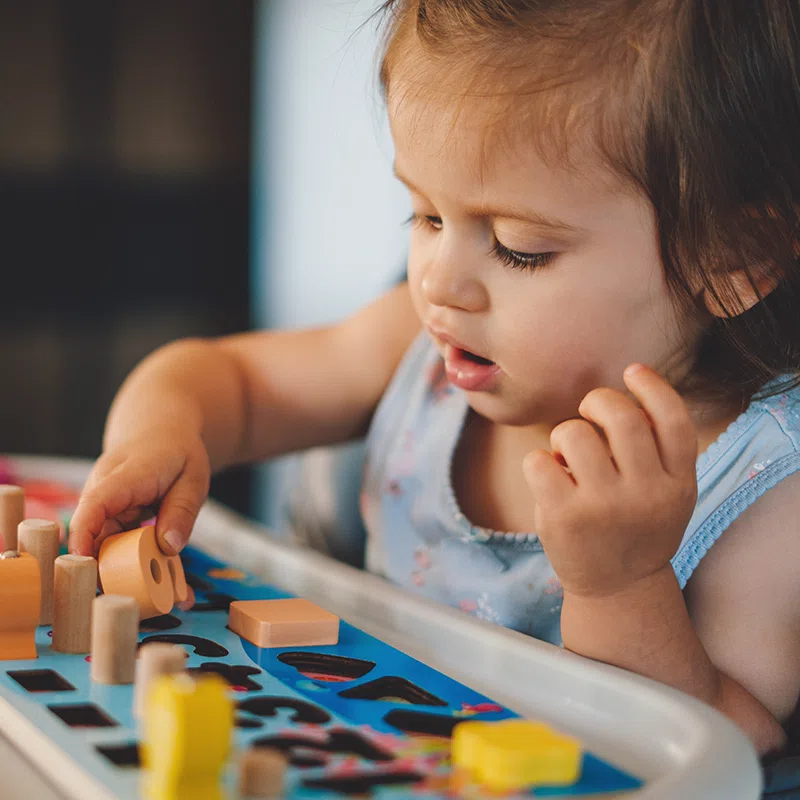
Involve your child in activities that promote social development as these provide opportunities for social interaction with like-minded peers. There are other ways to support the development of social skills in children with high learning potential.
You can actively encourage your child through activities such as reading books with emotional themes, role-playing enacting various social situations, or using social stories to teach appropriate social behaviours.
Children with high learning potential may struggle with communication, particularly if they have difficulty with social cues or expressing their thoughts and feelings. Encouraging them to practice active listening, asking questions, and expressing themselves clearly can help build their communication skill.
It is also important to recognize that acquiring social skills is a lifelong learning process and that mistakes and setbacks are a natural part of the learning process. Encouraging a growth mindset and a positive attitude towards learning can help children with high learning potential feel more confident in their social interactions.
Supporting the development of social skills in children demands patience, understanding, and a willingness to provide active support and encouragement. With the right support, your child will develop the skills she needs to thrive socially and emotionally, both now and in the future.
About My Gym
My Gym involves children in activities that promote social development through dynamic games, physical activity and movement that help in building neural networks in the brain. By customizing activities to promote social and emotional development, My Gym makes it easier for children to acquire critical social and intellectual skills that enable them to navigate complex social situations, and nurture emotional development.
Please visit any of our centres to learn more about how My Gym supports “whole-child development” through bespoke physical activities. Choose a day when you will be relatively free and come over with your child in tow. Your child could be an infant (as young as 6 months), a toddler or a preschooler, age is not a bar for enrolling.
My Gym has perfected activities to promote social and emotional development that nurtures and strengthens confidence levels among children. My Gym also runs programs that help lay a firm foundation for personal, academic and future growth by involving children in age-appropriate, structured and unstructured physical activities and developing thinking and problem-solving skills.
Please note: My Gym classrooms are thoroughly sanitized every day — the tables, the chairs, the children’s activity stations and everything else the child might touch is made safe and clean. Please wear a mask, wash your hands frequently, and practice social distancing.


